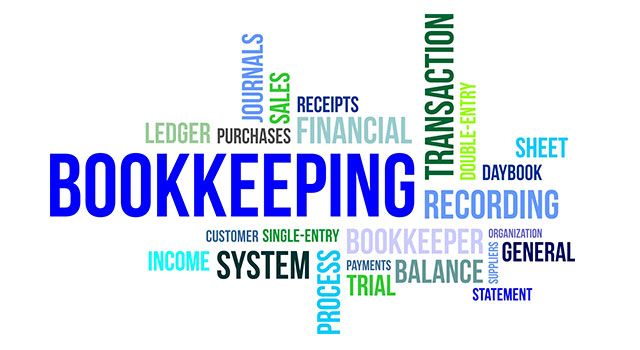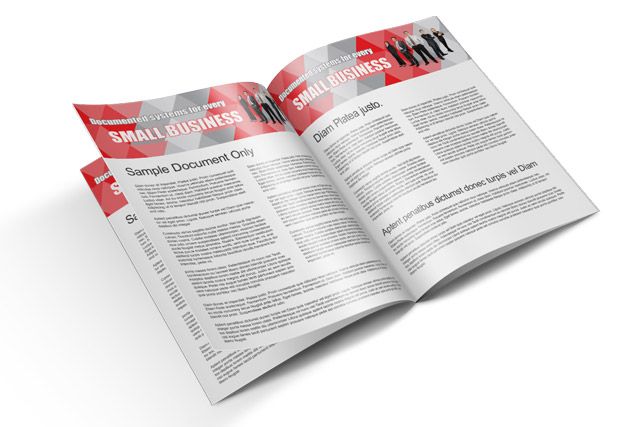
Personal Property Securities Act Presents Businesses A "Time Bomb"
Issue 0024
Lack of knowledge of the Personal Property Securities Act (PPSA) and the Personal Property Securities Register (PPSR) could be a ‘time bomb’ for businesses. Millions of dollars have already been lost by businesses that paid for an asset but hadn’t registered that asset on the PPSR. Whilst it’s voluntary to register, businesses need to be alert to the requirement that, if they are going to register, they have to do so within a very tight registration time period. This highlights the need for a proper due diligence review to be undertaken now (if not yet done) so the decision can be made promptly on whether the transaction or asset rental, lease or storage is to be registered on the PPSR.
The PPSA legislation can affect virtually any type of business. Businesses need to be continually reviewing transactions relative to debtors, loans made to other people, intellectual property arrangements, service entity arrangements and asset rental, lease or storage.
What is the problem?
The majority of the court decisions, relative to cases involved in the PPSA, have found in favour of liquidators, receivers and administrators, primarily because the business that had paid for an asset hadn’t registered their interest on the PPSR. Losses have taken place due to ignorance of the legislation and affected a wide range of business activities, including:
- Motor vehicles and trailers.
- Cleaning equipment and products.
- Assets hired, situated on someone else’s property.
- Construction equipment owned by one company (the entity that owns the asset hired to another company), the operational unit (even though they are operating within the same group of companies).
- A cabinet maker received a preferential payment demand from a liquidator, relating to rent of kitchen suites to a developer, where a liquidator was appointed.
- Considerable financial costs to many businesses operating in hiring and renting of equipment, motor vehicles, etc.
There are significant problems with preferential payments. A liquidator can have a claim against a business for unfair preference payments. This can occur where the business hadn’t supplied the goods on a ‘Retention of Title’ basis and didn’t have a signed ‘Terms of Trade’ agreement and, therefore, hadn’t made a registration on the PPSR. Businesses should be very alert to the problems the preferential payments can cause. The problem with the PPSR is that registration is voluntary and many businesses have interpreted the ‘voluntary registration’ as an indicator that the legislation is not that important. It is very important and, in fact, could lead to financial failure of a business. We believe that accountants, acting as a ‘trusted adviser’ to SMEs, should be undertaking a due diligence reviews, as part of the risk management strategy, to assist SME clients protect their assets under this legislation Darren Vardy, director of SV Partners – specialist accountants and advisers, has made the following comment: “As an insolvency practitioner, quite often we are faced with suppliers who have retention of title clauses (Romalpa) in place, but are not aware of the changes in the security regime effective in January 2012. This lack of awareness amazes me and is predominant amongst small businesses. Unfortunately the business owner generally finds out the hard way, when faced with an insolvency practitioner who tells them that they no longer have the title and/or ownership of goods.”
When is the time to act?
The honest answer to this is NOW. You may be entering into a transaction every day that, if you were fully aware of the consequences, you would want to register. If you’re going to register on the PPSR, registration has to be undertaken within a very short time frame, the maximum being 20 days after an event. It’s too late to be thinking about it in three or four months’ time. Action is required now. We believe that accountants should be undertaking a due diligence review with their clients, to ascertain the procedures that have been implemented by you, on a wide range of business activities, to check that you’re aware of the operations of the PPSA relative to those activities. This could include:
- Where are your assets located?
- What assets are on consignment to someone else?
- What assets are on hire or lease?
- If you’re a primary producer, do you have livestock on agistment?
- Do you have crops or grains situated on someone else’s property?
- Has your business entered into any arrangements with intellectual property, licences and service entity arrangements?
- Has your trading entity borrowed money, especially if that trading entity is hiring assets from another entity within your business group?
We believe it’s necessary to review the transactions and determine your potential exposure to various customers, so a decision can be reached on whether your business would suffer an ‘extreme financial embarrassment’ if, for some reason, your customer wasn’t able to pay you for a particular transaction or were in possession of an asset owned by you when an ‘insolvency event’ occurred.
Why act now?
Businesses are incurring transactions every day. The legislation has very strict registration requirements, including:
- Where the collateral is inventory, the security interest must be registered before the time the grantor (your customer) obtains possession of the collateral (inventory/stock).
- Where the collateral is not inventory, the security interest must be registered within 15 days of the grantor (your customer) obtaining possession of the collateral.
- Where the collateral is other security interest (eg an intellectual property assignment), the security interest must be registered within 20 days from the date of the security agreement.
These registration dates highlight the necessity for action to be taken now rather than at some future date. One of the real problems with this legislation is that an ‘insolvency event’ for a particular customer might not occur (hopefully, will never occur) for many years. It would be too late then to try to make the necessary registrations on the PPSR at that time
Accountants can assist
Accountants are normally very busy concentrating on taxation issues. However, we consider that undertaking a review of your preparedness for the requirements of the PPSA is a risk management function an accountant should be performing for you for a professional fee. In the first instance, we suggest that you have a discussion with your accountant, to ascertain whether they’re able to conduct a detailed due diligence review of your systems, to determine what transactions, hirings or leases should be registered on the PPSR. If your accountant indicates that they’re unable to conduct this type of review for you, we can refer you to an accountant utilising PPSR due diligence system, which assists with the identification of transactions to which detailed consideration should be given, on whether a registration is desirable on the PPSR. Please don’t hesitate to send an email to peter@essbiztools.com.au, with your location and postcode, and we will send you the names of accountants, within your area, who are able provide you with this service. A due diligence review will take as little as one hour for some businesses or may take up to eight hours for other businesses, depending on the complexity of the business activities. The key is to have an understanding of your business’ situation to implement procedures, so your business is able to monitor its own affairs, whilst being alert to transactions and event, which might warrant that particular event or transaction to be registered on the PPSR. As a preview of what the PPSR Due Diligence System has to offer, a complimentary copy of the article 'Personal Property Securities Act - Run A Business - Top Ten PPSA Myths', which is included in the system, can be downloaded:
Past Posts
-
 Innovation is Important for SMEs
Innovation is Important for SMEs -
 6 Steps to Boost Your Productivity and Profits
6 Steps to Boost Your Productivity and Profits -
 Tax Incentives For Early Stage Investors
Tax Incentives For Early Stage Investors -
 ESIC Targets SMEs, Inventors, Young Companies
ESIC Targets SMEs, Inventors, Young Companies -
 Early Stage Innovation Company Investor Opportunities
Early Stage Innovation Company Investor Opportunities -
 Will You Have an ESIC Story?
Will You Have an ESIC Story? -
 Are you Receiving a CFO Service from your Accountants?
Are you Receiving a CFO Service from your Accountants? -
 Succession Planning
Succession Planning -
 Business Plans
Business Plans -
 The Year for Business Advisory Services!
The Year for Business Advisory Services! -
 Are you Aware of the PPSR?
Are you Aware of the PPSR? -
 SME Operators – Accountants can Help you with Debtors’ Ma...
SME Operators – Accountants can Help you with Debtors’ Ma... -
 Happy New Financial Year
Happy New Financial Year -
 The Finalisation of the ESIC Legislation will be a Great ...
The Finalisation of the ESIC Legislation will be a Great ... -
 A Business Evaluation Review Can Assist You
A Business Evaluation Review Can Assist You -
 June is a Great Time to Prepare a Business Plan
June is a Great Time to Prepare a Business Plan -
 Businesses Need a Broad Succession Strategy
Businesses Need a Broad Succession Strategy -
 Innovation Companies are a Great Opportunity for SMEs
Innovation Companies are a Great Opportunity for SMEs -
 The PPSR – are you aware of it and how it can affect your...
The PPSR – are you aware of it and how it can affect your... -
 Debtors Management - Vital for Business Success
Debtors Management - Vital for Business Success -
 How can your Accountant assist you?
How can your Accountant assist you? -
 The Personal Property Securities Register – how do you pr...
The Personal Property Securities Register – how do you pr... -
 Legal Advice is Essential for Business Success
Legal Advice is Essential for Business Success -
 Is your accountant your trusted adviser
Is your accountant your trusted adviser -
 Is your accountant famous for adding value?
Is your accountant famous for adding value? -
 Portfolio Allocations Are Important For Effective Management
Portfolio Allocations Are Important For Effective Management -
 The Challenges To Navigate In 2015
The Challenges To Navigate In 2015 -
 Business Plans Are Important For All Businesses
Business Plans Are Important For All Businesses -
 Entrepreneurs’ Infrastructure Program
Entrepreneurs’ Infrastructure Program -
 Digital Disruption Is A Major Concern
Digital Disruption Is A Major Concern -
 Court Case Decisions on the Personal Property Securities ...
Court Case Decisions on the Personal Property Securities ... -
 Personal Property Securities Act Presents Businesses A "T...
Personal Property Securities Act Presents Businesses A "T... -
 Do You Require Additional Financial Services?
Do You Require Additional Financial Services? -
 Personal Property Securities Act – How Does It Affect Sma...
Personal Property Securities Act – How Does It Affect Sma... -
 Business Health Checks For Your Business
Business Health Checks For Your Business -
 Why Do Some Accountants Offer Chief Financial Officer Ser...
Why Do Some Accountants Offer Chief Financial Officer Ser... -
 Getting Assistance From Your Accountant To Better Manage ...
Getting Assistance From Your Accountant To Better Manage ... -
 Identifying The Services You Want To Receive From Your Ac...
Identifying The Services You Want To Receive From Your Ac... -
 What Is Business Advisory Services?
What Is Business Advisory Services? -
 Accountants Can Offer More Services Than Just Tax Returns
Accountants Can Offer More Services Than Just Tax Returns -
 Being Kept In The Loop By Your Accountant
Being Kept In The Loop By Your Accountant -
 Personal Property Securities Register – Have You Develope...
Personal Property Securities Register – Have You Develope... -
 Reducing Debtors' Days Outstanding
Reducing Debtors' Days Outstanding -
 Management of Costs - An Overview
Management of Costs - An Overview -
 Succession Planning - Why Is It Necessary?
Succession Planning - Why Is It Necessary? -
 Safe Guarding your Business under the Personal Property S...
Safe Guarding your Business under the Personal Property S...




































